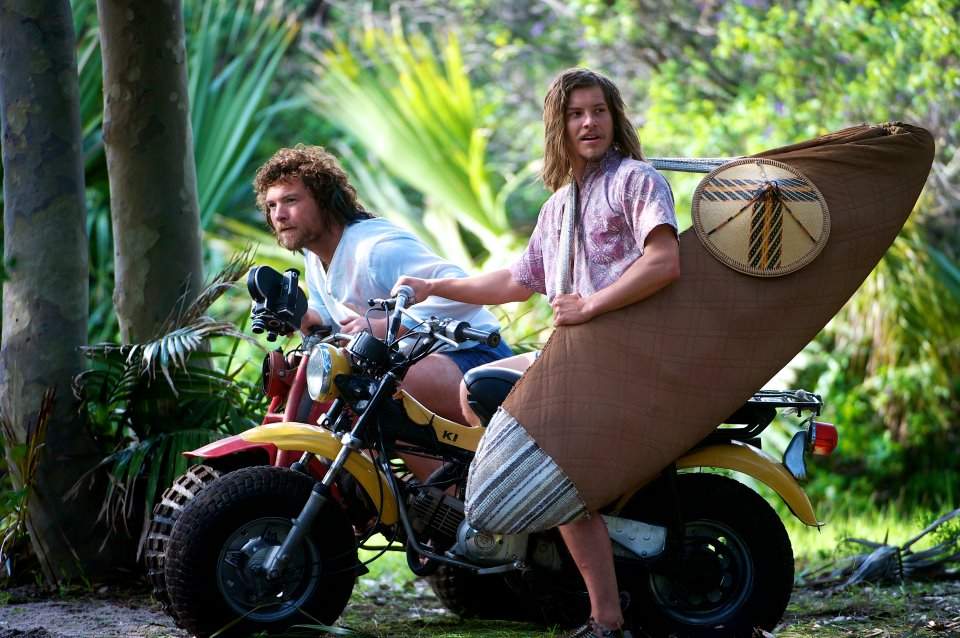Drift
Heroin, near-fatal accidents, a Kombi-driving hippie and waves to die for.
Overview
Drift, written and directed by Morgan O'Neill (Solo), carries us into the world of Australian surfing in the 1970s, when 'the dream' began its transformation into an industry. In remote coastal areas, surfers reluctant to trade their freedom for the drudgery and exploitation of dull, nine-to-five jobs started selling surf gear from their backyards, giving birth to (now) household names like Billabong and Rip Curl. Tiny towns became hotbeds for tensions between maintaining authenticity and 'selling out', and as the money rolled in, so too did heavy drugs and hard-nosed competitive interests.
The tale of a family fleeing domestic abuse propels the film's storyline. Desperate to escape her violent husband, Kat Kelly (Robyn Malcolm) throws her sons Andy (Myles Pollard) and Jimmy (Xavier Samuel) in her beat-up secondhand car and drives across Australia. Their journey ends in idyllic Seacliffe, a fictional village in Western Australia's Margaret River region, where life moves at an easy pace and the break is never crowded.
As the boys undergo the difficult business of becoming men, each develops his own set of troubling traits. Jimmy, despite displaying the potential of a pro surfer, is lured into theft and deceit by Miller (Steve Bastoni), chief thug of a local bikie gang. Andy, on the other hand, decides to start a home-run surf gear enterprise, but his hotheaded stubbornness gets him into strife. Meanwhile, Kat, struggling to pay the mortgage, is perpetually on the brink of eviction.
Whether or not Andy will 'make it' is the central hook, and a sequence of traumatic twists and turns in the plot aims to heighten dramatic tension: With the bikies comes heroin, to which a close friend falls victim. A Kombi-driving hippie, JB (Sam Worthington), arrives, challenging the notion of the commercialisation of surfing. His attractive female travelling companion, Lani (Lesley-Ann Brandt), draws the attention of both brothers, threatening heartbreak. Andy clashes with a surf comp sponsor, and there are even a handful of near fatal accidents.
All of these stories are valid. Each of them is relevant to the era. They are told against a stunning backdrop — the cinematography is breathtaking. However, in trying to touch on such a plethora of misadventures, Drift has a hard time giving each the depth of treatment required to give it weight. We walk away with a broad brush impression of the flavour of the period, but our connection with the characters is minimal and the approach taken to their concerns is simplistic. Moments of laboured dialogue do not help.
While Drift's intention to present a grand fraternal-driven narrative is admirable, the film falls short on delivery. O'Neill's skillfully directed, intelligently written, classy debut, Solo, showed that he is capable of so much more.





